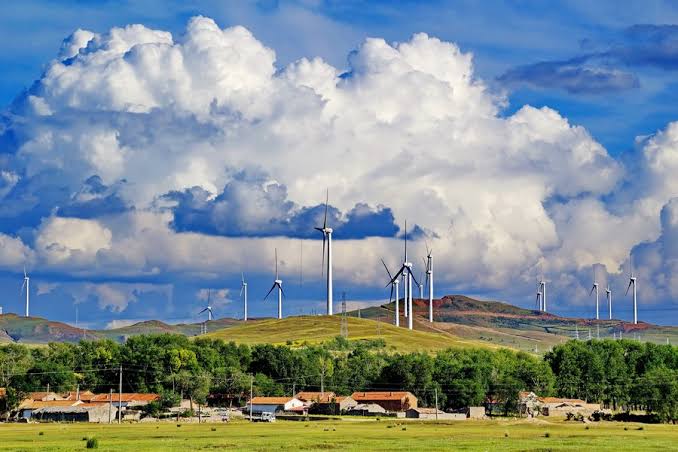Beijing, June 05, 2024, The Europe Today: China has disclosed commendable advancements in environmental preservation efforts for the year 2023, showcasing marked improvements in both air and water quality. The Ministry of Ecology and Environment unveiled these achievements in a comprehensive communique released on Wednesday, shedding light on the nation’s sustained commitment to mitigating environmental degradation.
According to the communique, which was made available on the ministry’s official website, data pertaining to 339 monitored cities revealed a notable decline in the average density of PM2.5, a pivotal metric in assessing air pollution. The average PM2.5 density for 2023 stood at 30 micrograms per cubic meter, marking a noteworthy decrease of almost 3 micrograms per cubic meter from the targeted annual figure. This reduction, amounting to 28.6 percent since 2016, underscores a consistent trajectory of amelioration in air quality across the nation.
Furthermore, the report underscored encouraging trends in surface water quality, with 89.4 percent of monitored sections exhibiting satisfactory conditions, meeting or surpassing Grade III standards in China’s comprehensive water quality classification system. This figure reflects a notable uptick of 1.5 percentage points compared to the previous year. Additionally, China’s stewardship over seawater areas within its jurisdiction demonstrated a commendable uptick, with 97.9 percent of these areas attaining top-tier quality, marking a modest increase of 0.5 percentage points year-on-year.
The disclosure of these achievements coincided with World Environment Day, an internationally recognized initiative spearheaded by the United Nations to galvanize global efforts towards environmental preservation. This year’s theme, centered on land restoration, desertification, and drought resilience, underscores the critical need for concerted action to safeguard the planet’s ecological integrity.
During a thematic event organized by the United Nations Environment Programme China Office earlier in the week, an official from the Ministry of Natural Resources unveiled China’s substantial strides in ecosystem restoration, encompassing diverse landscapes such as mountains, rivers, forests, farmlands, lakes, grasslands, and deserts. Notably, over 100 million mu (approximately 6.7 million hectares) of ecosystems have been rejuvenated, underscoring China’s proactive stance towards environmental sustainability and biodiversity conservation.
China’s laudable progress in environmental protection serves as a testament to the nation’s unwavering dedication to fostering a harmonious coexistence between economic development and ecological preservation. As the global community grapples with pressing environmental challenges, China’s strides in this domain offer a beacon of hope and inspiration for collective action towards a sustainable future.








